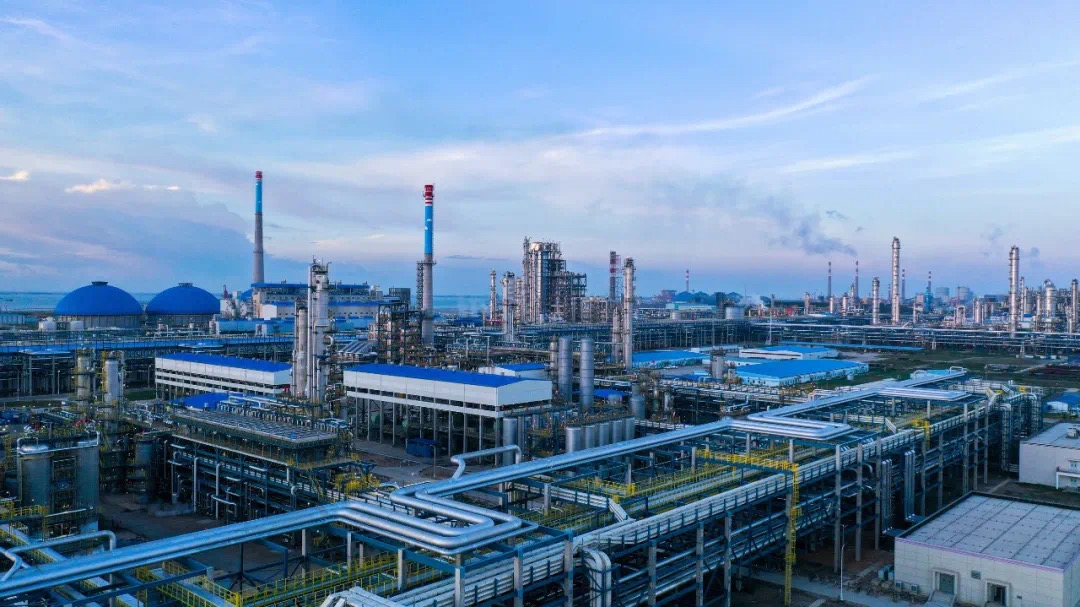Sinopec refinery sets pace in smart push


China Petroleum and Chemical Corp, which is known as Sinopec, Asia's biggest refiner, is speeding up the development of its intelligent refinery in the coastal city of Zhanjiang, Guangdong province.
Operations at the Zhongke (Guangdong) Refinery and Petrochemical Project Co Ltd are mostly automated, so only about 1,500 employees work on site, far less than the 6,000 to 8,000 staff members needed at conventional plants of comparable size.
The complex began production in June. It provided the first batch of 33,800 metric tons of gasoline and diesel oil to markets in South China and East China in August.
On Sept 4, 280 tons of polypropylene resin products were loaded for delivery to markets nationwide, marking the project's debut in chemical products.
About 95 percent of its output is produced domestically. The company achieved several technological breakthroughs, ending dependence on foreign products. The plant's annual output value could exceed 60 billion yuan ($8.86 billion).
Zhongke Refinery uses a highly automated production system that improved its efficiency. Its ProMACE platform is a virtual chemical industrial internet that enhances the refinery.
Its 2,000-square-meter central control room, the largest in the refinery industry, has a gigantic screen and about 400 individual control boards, which can monitor, coordinate, and connect over 30 major product units.
"It represents the highest level of intelligent operations in the industry," said Deng Hanshen, a senior consultant of the plant.
Operators in the control room can see the entire process of production, logistics, environment protection, and warehouse functions.
The intelligent factory connects dozens of teams from production and infrastructure to operations management. For example, the results of crude oil and other product samples on the quality analyses device of its laboratory information management system could be automatically updated to the product packaging workshop and warehouse facility. This increases working efficiency substantially compared to manual data input.
The industrial internet is an ideal approach to digitalize industrial operations, said Jiang Baihua, senior vice-president of Petro-Cyber-Works Information Technology Co Ltd, which developed the ProMACE platform.
"If we could monitor all of Sinopec's 3.8 million key devices together, safety risks could be preempted," Jiang said.
He said he believes industrial internet is also key to environmental protection because it could predict and monitor all pollution emission points of a refinery or a petrochemical plant.
The emission management of the chemical industry is enormously complicated. For example, a medium-sized refinery has more than 3,000 dangerous emission points.
He said internet-based management could also help connect refineries with other firms in the industrial chain, thereby helping increase the utilization rate of crude oil.
The added value of China's industrial internet industry is expected to reach 3.7 trillion yuan by the end of this year, according to data from the China Academy of Industrial Internet.




































